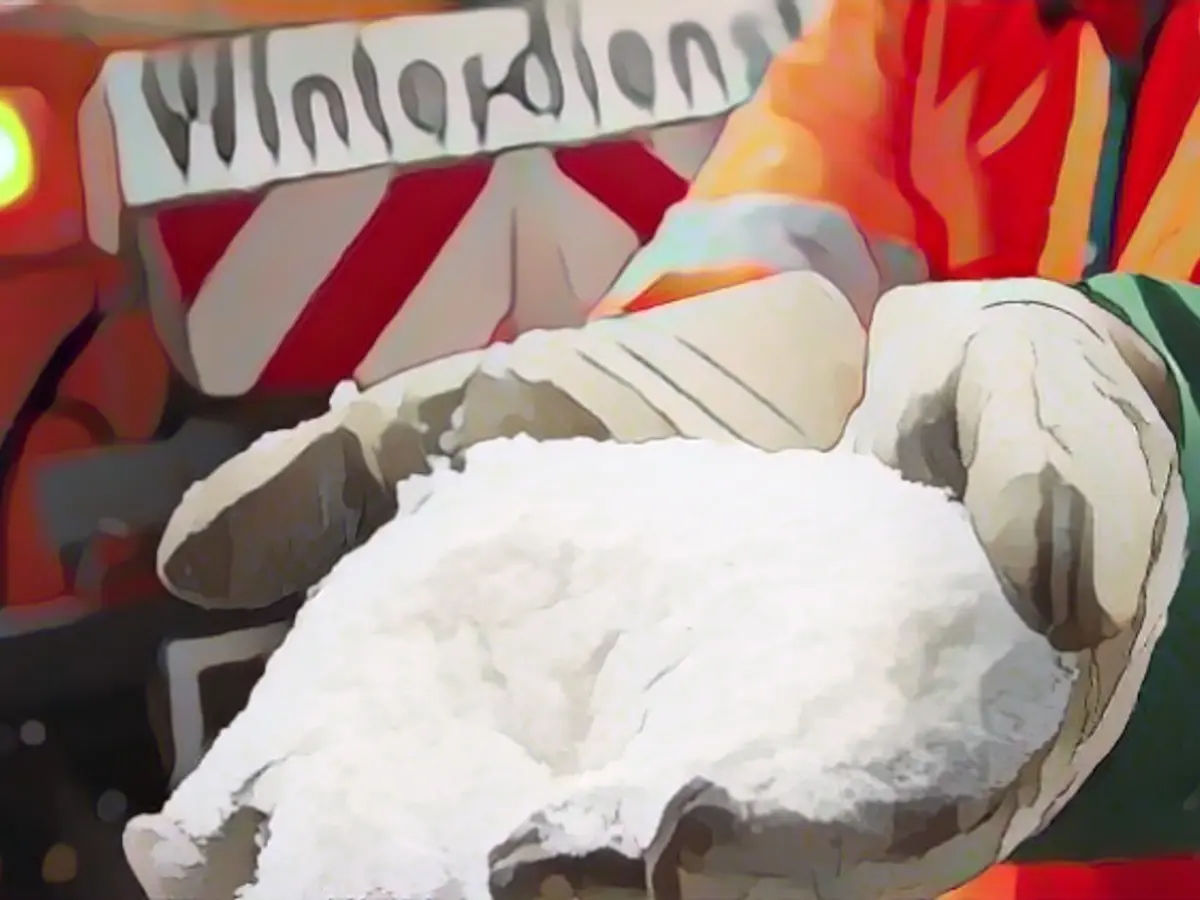Navigating the Winter Ice Blitz: A Homeowner's Salt Dilemma
Winter's chilly breath has taken a grip on Germany, and along with the frost comes an issue that many residents face: dealing with icy sidewalks. But hold on a sec, that trusty bag of road salt might not be your best bet. Let's dive into why and explore some alternatives to keep both your wallet and Mother Nature in tow.
Don't Salt without Sleuthing
Sidewalk gritting is a common homeowner and tenant responsibility during winter. Various methods exist to tackle the icy conditions. In the past, homeowners were quick to salt away the problem without a second thought. However, times have changed, and many cities have banned the use of road salt for gritting sidewalks, resulting in hefty fines. Before you sweep up the sidewalk path, double-check your local authority's regulations to avoid falling victim to these penalties.
Places with a Salt Ban
Not all cities adhere to the salt ban verbatim, but here are some major municipalities that have forbid the practice: Berlin, Duisburg, Freiburg, Hamburg, Karlsruhe, Lübeck, Mainz, Munich, Schwerin, and Wiesbaden. It's essential to check the current legal situation in your area, as rules and regulations may vary.
Time for an Alternative
Fortunately, there are alternative options available to tackle icy sidewalks. Sand, gravel, and grit are great choices for making sidewalks tread-proof and provide an excellent alternative to salt in areas with salt bans. If harvesting materials isn't your vibe, these alternatives are readily available at your local DIY store or garden center. Alternatively, classic snow shoveling is always a lifesaver.
The Truth About Salt
When it comes to ice and snow, salt is king, but it isn't without its consequences. Spreading salt lowers the freezing point of ice and snow, but with this trick comes unwanted side effects for Mother Nature.
Salt's Environmental Impact
As the salt works its magic on the ice and snow, it wreaks havoc on the environment. Direct contact with salt causes chemical burns for soil, making it more difficult for soil fungi, plants, and nutrients to flourish. The salt also seeps into groundwater, causing trouble for aquatic life.
Salt also damages infrastructure, buildings, and cars. The corrosive properties of road salt can cause staining and decomposition, especially in closed structures like listed buildings. In addition, animals experience discomfort and potential injury from salt on their paws.
Choosing Wisely
In light of the potential environmental impact of salt, it's wise to consult an advisor before experimenting with home ice-melting solutions. If you find yourself mired in legal issues due to damaged property or compensation claims, it's best to seek the counsel of a legal expert.
It would be remiss not to mention that this recent snowfall has left sidewalks perilously slick. While salt might have been the go-to for years, the changing legal landscape and potential environmental concerns make alternatives like sand and grit seem like wiser choices.
Additional Gritting Insights
- In many places, municipal salt bans have prompted an upswing in the popularity of grit, granulate, or other blunting agents as alternatives to traditional road salt.
- The Blue Angel certification is a wonderful resource for homeowners seeking salt-free gritting agents that meet environmental standards.
- Energy-intensive alternatives like expanded clay can be used sparingly to address gardens or critical areas, but their widespread use isn't recommended due to their environmental footprint.








